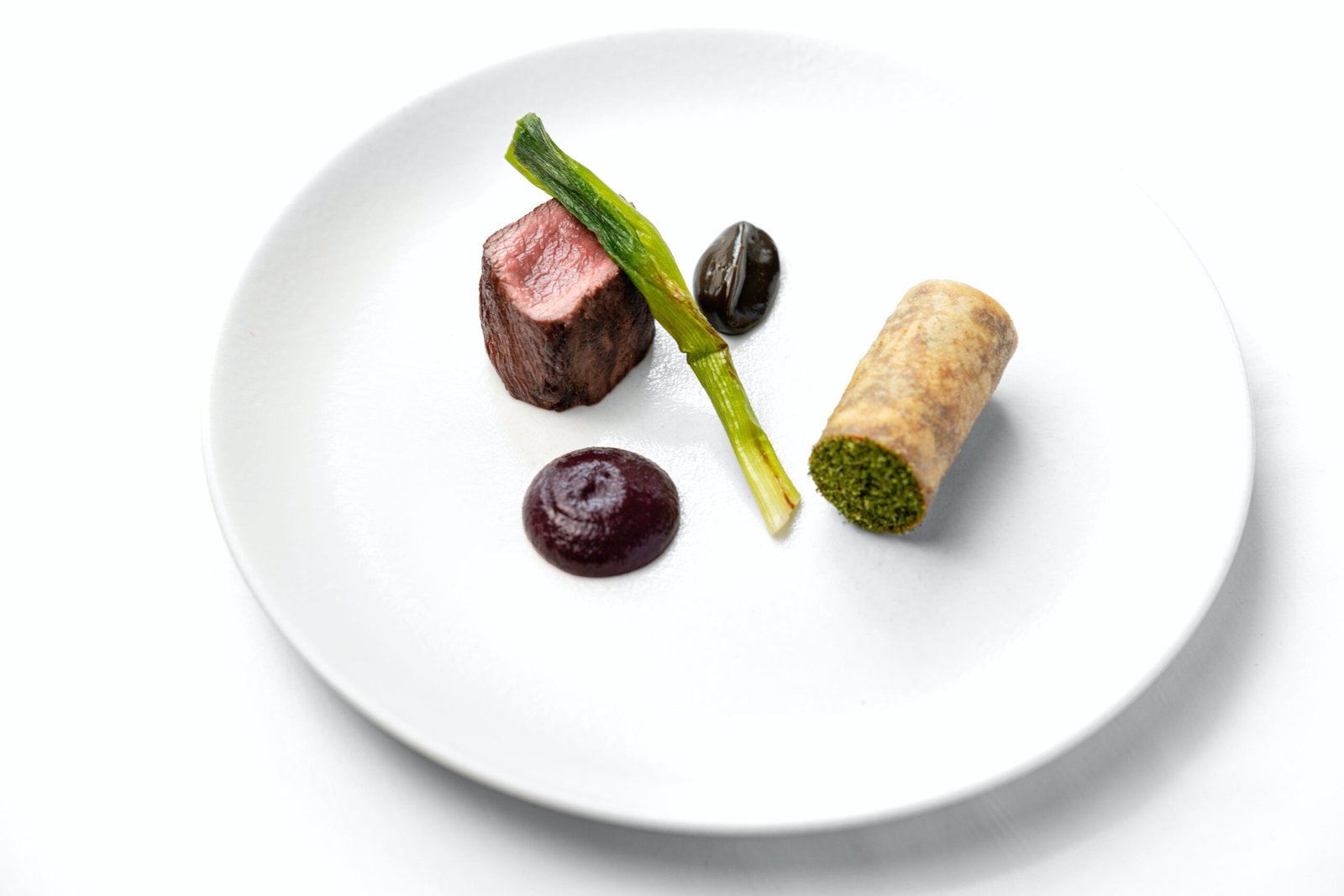
Imagine having a beautiful garden filled with vibrant, healthy plants right in the comfort of your own home. With an indoor vertical hydroponic garden, this dream can become a reality. This innovative gardening method allows you to grow a wide variety of plants in a vertical arrangement, saving space and maximizing your harvest. Not only does it bring the beauty of nature indoors, but it also offers numerous benefits such as year-round gardening, reduced water usage, and the freedom to grow your favorite vegetables and herbs regardless of the weather. Say goodbye to the limitations of traditional gardening and say hello to the endless possibilities of an indoor vertical hydroponic garden.

Health Benefits
Improved Air Quality
Having an indoor vertical hydroponic garden can greatly improve the air quality in your living space. Plants are natural air purifiers, and through the process of photosynthesis, they absorb carbon dioxide and release oxygen. This can help to minimize the presence of pollutants and increase the overall freshness of the air you breathe. With an indoor garden, you can have a constant supply of oxygen-rich air, creating a healthier indoor environment.
Enhanced Mood and Well-being
Being surrounded by lush greenery and vibrant plant life can have a positive impact on your mood and overall well-being. Studies have shown that spending time in nature or even just being around plants can reduce stress levels, lower blood pressure, and promote relaxation. With an indoor vertical hydroponic garden, you can bring the beauty and benefits of nature into your home, improving your mental and emotional state.
Reduced Stress Levels
Life can be demanding and stressful, but having an indoor vertical hydroponic garden can help alleviate some of that stress. Gardening, even on a small scale, provides a sense of purpose and responsibility. Taking care of your plants, watching them grow, and nurturing them can be a calming and therapeutic activity. It allows you to step away from the hustle and bustle of everyday life and find solace in the simple act of tending to your plants.
Increased Productivity and Concentration
Believe it or not, an indoor vertical hydroponic garden can actually enhance your productivity and concentration. Several studies have shown that having plants in the workspace or learning environment can improve focus, creativity, and cognitive performance. The presence of greenery can provide a visually appealing and calming atmosphere, enabling you to stay more engaged and motivated in whatever tasks you’re working on. So, whether you have your garden at home or in your office, it can contribute to a more productive and efficient day.
Space Efficiency
Utilization of Vertical Space
One of the significant advantages of an indoor vertical hydroponic garden is its ability to make the most of vertical space. Traditional gardening methods require a considerable amount of horizontal space, but by utilizing vertical space, you can grow more plants in a compact area. With specially designed vertical hydroponic systems, you can stack multiple layers of plant beds, maximizing the use of your available space.
Ideal for Small Living Spaces
Living in a small apartment or having limited outdoor area doesn’t mean you can’t enjoy gardening. An indoor vertical hydroponic garden is the perfect solution for those with limited space. Its compact design allows you to grow a wide variety of plants without the need for a sprawling garden. You can set it up in any available corner of your living space, balcony, or even a small kitchen countertop.
Maximization of Growing Area
In traditional gardening, a significant portion of the growing area can be taken up by walkways, pathways, and unnecessary spaces. However, with an indoor vertical hydroponic garden, you can maximize every inch of the growing area. By eliminating the need for walkways and arranging plants vertically, you can achieve higher yields in a smaller space. This efficient use of space takes gardening to a whole new level, allowing you to grow more produce and herbs in a limited area.
Compact Design
Indoor vertical hydroponic gardens are designed to be compact and space-saving. They often come in sleek and modern designs, blending seamlessly into any interior décor. You can choose from a wide range of sizes and configurations to suit your space and gardening needs. Whether you opt for a freestanding unit or a wall-mounted system, the compact design ensures that your garden doesn’t take up unnecessary space and still provides ample room for plants to thrive.

Year-round Planting
Independent of Seasonal Changes
With an indoor vertical hydroponic garden, you are no longer bound by seasonal changes. Traditional outdoor gardens require specific planting times based on the climate and weather conditions. However, with the controlled environment of an indoor garden, you can grow plants all year round regardless of the season. This means you can enjoy fresh herbs, leafy greens, or even fruits and vegetables regardless of the time of year.
Continuous Harvesting
Indoor vertical hydroponic gardens allow for continuous harvesting. Unlike traditional gardens where you have to wait for crops to mature and be harvested all at once, hydroponic systems enable staggered planting and harvesting. With plants arranged vertically and growing at different stages, you can consistently harvest fresh produce as it becomes ready. This ensures a steady supply of homegrown goodness for your meals.
Unaffected by Extreme Weather Conditions
Extreme weather conditions such as frost, heatwaves, or heavy rainfall can severely impact traditional outdoor gardens. However, an indoor vertical hydroponic garden is not reliant on external climate conditions. With a controlled and stable environment, your plants stay protected and unaffected by any extreme weather outside. You can have peace of mind knowing that your garden will continue to thrive regardless of what’s happening in the great outdoors.
No Dependency on Outdoor Climate
If you live in an area with an unfavorable climate for gardening, such as a region with short growing seasons or extreme temperatures, an indoor vertical hydroponic garden is the perfect solution. You can create the optimal growing conditions for your plants indoors, regardless of what’s happening outside. This allows you to grow a wide variety of plants that may not thrive in your local climate, expanding your gardening possibilities.
Water Conservation
Significant Reduction in Water Usage
Water scarcity is a growing concern, and it’s essential to adopt sustainable practices, even in gardening. With an indoor vertical hydroponic garden, you can significantly reduce water usage compared to traditional soil-based gardening. Hydroponic systems use water more efficiently, providing the right amount directly to the plants’ roots, minimizing waste and evaporation.
Recirculation and Reuse of Water
One of the great advantages of hydroponic systems is the ability to recirculate and reuse water. Excess water that is not immediately utilized by the plants can be collected and circulated back into the system. This closed-loop water system minimizes water wastage and ensures that every drop is used efficiently. It also reduces the need for frequent watering and eliminates the hassle of manually watering plants.
Minimal Water Loss through Evaporation
In traditional soil-based gardening, evaporation can lead to significant water loss. However, with hydroponic systems, water loss through evaporation is minimal. The water is contained within the system, and there is no direct contact with soil or exposed surfaces. This means that the water is not lost to the environment through evaporation, allowing you to conserve water and reduce overall water consumption.
Optimal Nutrient Uptake by Plants
Hydroponic systems provide precise control over nutrient delivery to plants. The water in the system is enriched with the required nutrients in the right proportions, ensuring optimal nutrient uptake by the plants. This targeted approach allows plants to efficiently absorb the nutrients they need, minimizing nutrient wastage and reducing the overall amount of nutrients required. By delivering nutrients directly to the roots, hydroponic gardens promote healthy and robust plant growth with minimal resource utilization.

Energy Efficiency
LED Lighting for Lower Energy Consumption
Indoor vertical hydroponic gardens require artificial lighting to ensure proper plant growth. However, these systems utilize energy-efficient LED lights, which consume significantly less energy compared to traditional lighting systems. LED lights produce the specific wavelengths needed for photosynthesis, maximizing energy efficiency and minimizing electricity costs over time.
Controlled Environment Saves Energy
With an indoor vertical hydroponic garden, you have the advantage of a controlled environment. This allows you to optimize temperature, humidity, and other conditions to promote plant growth. By carefully managing these factors, you can create an environment that is ideal for your plants, minimizing the need for excessive heating or cooling. This energy-efficient approach ensures that your garden thrives without consuming unnecessary energy.
No Need for Seasonal Heaters or Cooling Systems
Traditional outdoor gardens may require additional heating or cooling systems to protect plants from extreme temperatures. However, with an indoor vertical hydroponic garden, you can eliminate the need for such equipment. The controlled environment provided by the hydroponic system maintains optimal temperature levels, eliminating the need for seasonal heaters or cooling systems. This reduces energy consumption and saves you from the hassle of constantly adjusting and monitoring temperatures.
Efficient Use of Electricity
Indoor vertical hydroponic gardens are designed to optimize electricity usage. From energy-efficient LED lights to automated systems that regulate lighting schedules and nutrient delivery, these gardens are built with energy efficiency in mind. By minimizing energy wastage and ensuring that electricity is utilized effectively, hydroponic gardens provide a sustainable and ecologically friendly approach to indoor gardening.
Pest and Disease Control
Limited Exposure to Outdoor Pests
Traditional outdoor gardens are often susceptible to a wide range of pests and insects that can damage plants. However, with an indoor vertical hydroponic garden, you can significantly reduce the exposure to outdoor pests. Since the garden is located indoors, pests have limited access, minimizing the risk of infestations. This means that you can enjoy healthy plants without the constant worry of pests munching away on your hard work.
Reduces Risk of Disease Transmission
In addition to pest control, indoor vertical hydroponic gardens also reduce the risk of disease transmission. Soil-borne diseases and pathogens can easily infect plants in traditional gardens. However, hydroponic systems eliminate the need for soil, providing a clean and sterile growing environment. This reduces the chances of disease transmission, ensuring that your plants stay healthy and free from common gardening ailments.
Easier Monitoring and Control
Monitoring and controlling pests and diseases in an indoor vertical hydroponic garden are much easier compared to traditional gardens. The compact and controlled space allows for better observation, making it easier to identify any potential issues early on. With prompt detection, you can swiftly take action to remedy the situation, preventing the spread of pests or diseases and ensuring the health of your plants.
Elimination of Soil-Borne Pests
The absence of soil in a hydroponic system completely eliminates the presence of soil-borne pests. Many common garden pests, such as root maggots or nematodes, thrive in soil environments. However, in a hydroponic garden, plants are grown in a soilless medium, eliminating the habitat for these pests. This means less reliance on pesticides and chemical treatments, promoting a more natural and eco-friendly way of gardening.
Food Security and Sustainability
Reduced Reliance on External Food Sources
Having an indoor vertical hydroponic garden can contribute to your food security. By growing your own fresh produce at home, you reduce your reliance on external food sources. This not only provides you with a sense of self-sufficiency but can also help mitigate the risks associated with food shortages or disruptions in supply chains. With a hydroponic garden, you have the power to grow your own food and ensure its quality and availability.
Supports Local Food Production
In addition to personal food security, an indoor vertical hydroponic garden can also support local food production on a broader scale. By cultivating your own produce, you lessen the demand for commercially grown food, which often requires extensive transportation and storage. This reduces the carbon footprint associated with long-distance food transportation and promotes a more sustainable and localized food system.
Reduces Environmental Impact of Transportation
Transporting food over long distances contributes to greenhouse gas emissions and other environmental impacts. By growing your own food with an indoor vertical hydroponic garden, you can reduce the need for transportation-related activities. Fresh produce can be harvested right in your own home, eliminating the carbon emissions associated with shipping and reducing your overall environmental footprint.
Promotes Sustainable Farming Practices
Hydroponic gardening is inherently sustainable due to its efficient use of resources and controlled cultivation practices. By adopting this method of gardening, you contribute to the promotion of sustainable farming practices. Hydroponics eliminates the need for chemical fertilizers and pesticides, reduces water consumption, and minimizes soil erosion and degradation. It’s a more environmentally friendly way to produce food and supports the conservation of natural resources.
Variety of Plants
Allows Growing of Various Plants
With an indoor vertical hydroponic garden, you have the freedom to grow a wide variety of plants. The controlled environment and tailored nutrient delivery system allow you to create the optimal conditions for different types of plants. Whether you want to grow herbs, leafy greens, vegetables, or even fruits, a hydroponic system provides the flexibility to experiment and diversify your plant collection.
More Crop Choices
Compared to traditional gardening, hydroponics expands your crop choices significantly. Some plants thrive better in hydroponic systems than in soil-based environments. For example, delicate herbs like basil and cilantro can grow abundantly and produce higher yields in a hydroponic garden. By venturing into hydroponics, you open up a world of possibilities for growing a wider range of crops, allowing you to explore new flavors and culinary experiences.
Diverse Plant Species
Hydroponic gardening is not limited to just a few common plant species. Many different plant species can thrive in a hydroponic environment. From vibrant flowers to exotic plants, the sky’s the limit when it comes to the variety of species you can grow indoors. This allows you to create a diverse and visually appealing indoor garden that showcases the beauty and uniqueness of various plant species.
Herbs, Leafy Greens, Vegetables, and Fruits
One of the most popular and rewarding aspects of hydroponic gardening is the ability to grow a wide range of herbs, leafy greens, vegetables, and even fruits. You can have an endless supply of fresh basil, crisp lettuce, juicy cherry tomatoes, or even strawberries, all from the comfort of your own home. The freshness and flavor of homegrown produce are unparalleled, and with a hydroponic garden, you can indulge in the joy of picking your own fruits and vegetables.
Aesthetics and Interior Design
Adds Greenery and Natural Beauty Indoors
An indoor vertical hydroponic garden brings the beauty of nature indoors, adding greenery and natural beauty to your living space. The lush, vibrant plants create a refreshing and inviting atmosphere, transforming any room into an oasis of green. The visual appeal of a well-maintained indoor garden enhances the overall aesthetics of your home, making it more visually pleasing and giving you a sense of tranquility.
Enhances Ambiance and Visual Appeal
The presence of plants has a significant impact on the ambiance of a space. An indoor vertical hydroponic garden can create a soothing and relaxing environment, making your home a more pleasant place to live. The green hues of the plants, coupled with their gentle movement in the air, can have a calming effect, reducing stress and improving your overall mood. Additionally, the natural beauty of the plants adds a touch of elegance to your interior design, elevating the overall visual appeal of your home.
Customizable to Fit Design Preferences
Indoor vertical hydroponic gardens can be customized to fit your design preferences and complement your existing décor. They come in various sizes, shapes, and styles, allowing you to choose a system that seamlessly integrates into your living space. Whether you prefer a minimalist, modern design or a more rustic look, there is a hydroponic garden that can align with your aesthetic preferences and enhance the overall design of your home.
Living Art Installation
An indoor vertical hydroponic garden is not just a functional piece; it can also be seen as a living art installation. The arrangement of plants, the colors, and the textures can be curated to create a visually striking display. The interplay between different plant varieties and the vertical growth patterns can turn your garden into a unique work of art. Displaying your hydroponic garden can become a focal point in your home, captivating the attention of guests and evoking admiration for your green thumb.
Educational Opportunities
Hands-on Learning for Children and Students
An indoor vertical hydroponic garden provides an excellent opportunity for hands-on learning, especially for children and students. Watching seeds sprout, plants grow, and fruits ripen can be a captivating and educational experience. Children can learn about plant life cycles, the importance of photosynthesis, and the interconnectedness of nature. By involving them in the care and maintenance of the garden, you can cultivate their curiosity, nurture a love for nature, and promote environmental awareness.
Understanding of Plant Lifecycles
Observing the entire lifecycle of a plant, from seed to harvest, can deepen your understanding of nature’s processes. In an indoor vertical hydroponic garden, you can witness this transformation up close, providing valuable insights into plant growth and development. Understanding the different stages of a plant’s life and what it needs to thrive fosters a deeper appreciation for the natural world and the delicate balance of ecosystems.
Promotes Science, Technology, Engineering, and Math (STEM) Education
Hydroponic gardening is a fantastic way to introduce children and students to the realms of science, technology, engineering, and math (STEM) education. From the scientific principles behind nutrient delivery and plant growth to the engineering aspects of setting up a hydroponic system, there are ample opportunities for exploration and experimentation. Hydroponics can spark curiosity and inspire future scientists, engineers, and innovators.
Practical Application of Botany and Agriculture Concepts
An indoor vertical hydroponic garden offers a practical and hands-on way to apply concepts learned in botany and agriculture classes. Students can apply their knowledge of plant anatomy, soilless cultivation, and nutrient uptake to create an optimal growing environment. They can also explore concepts like pH balance, light spectrum, and hydroponic system design. By engaging in real-life applications of these concepts, students gain a deeper understanding of the subject matter and develop critical thinking skills.





